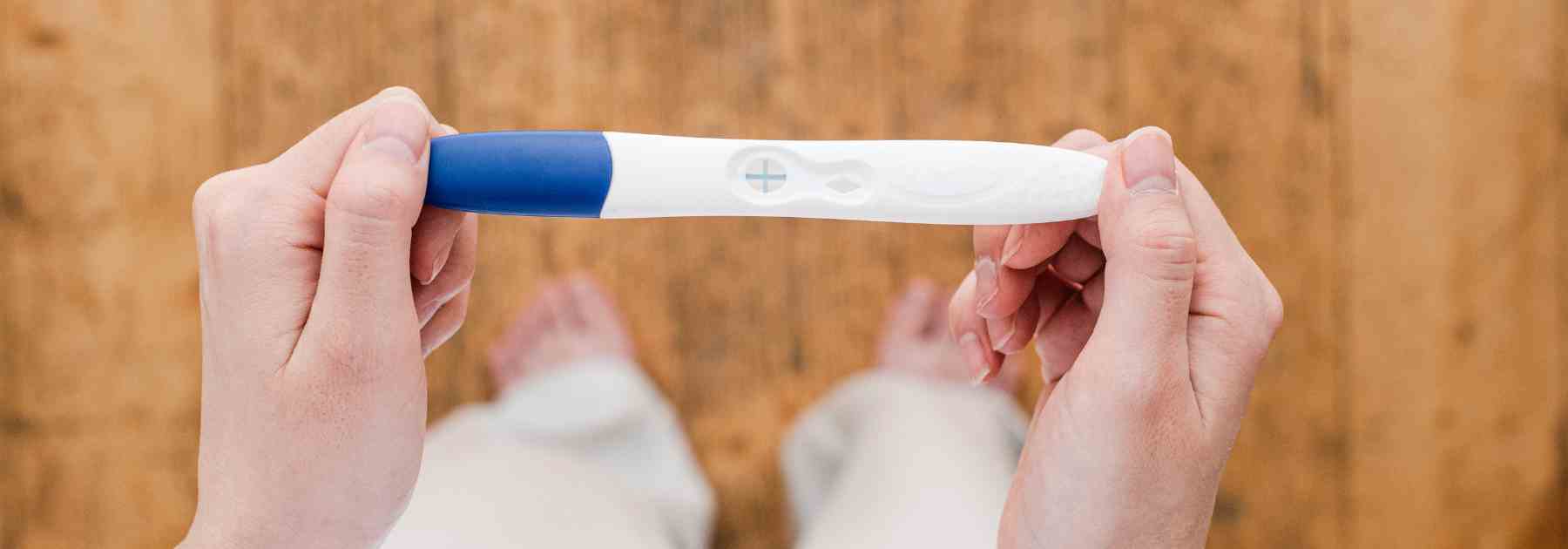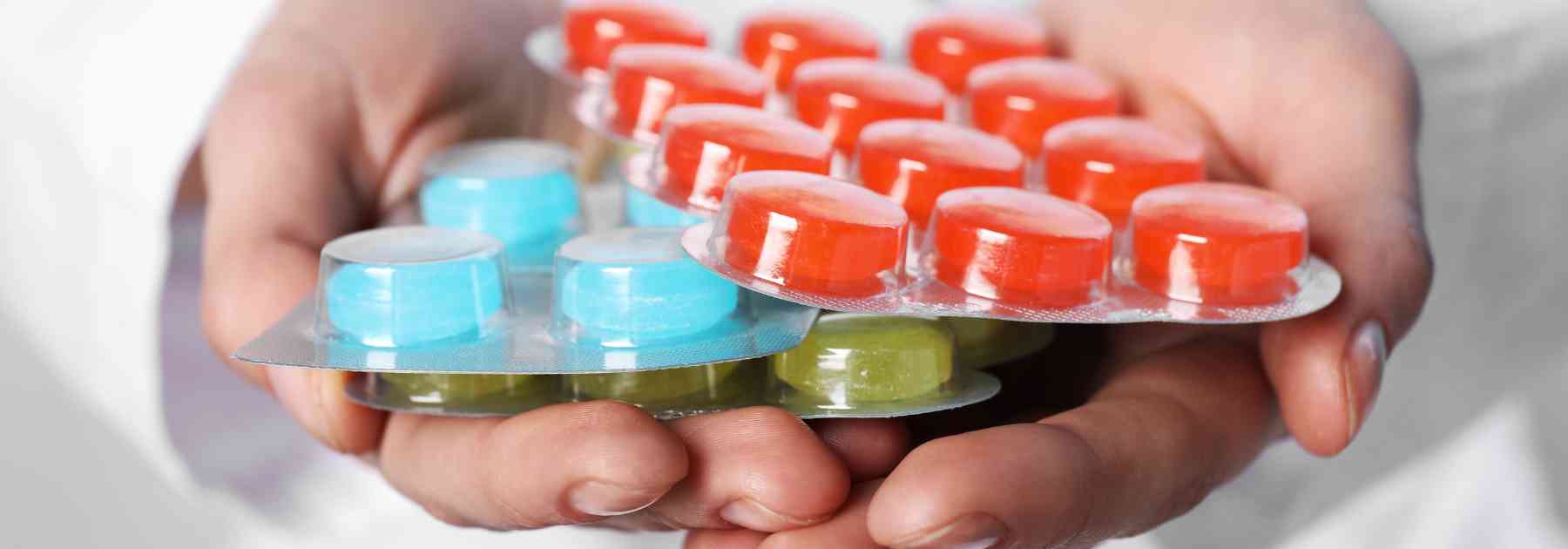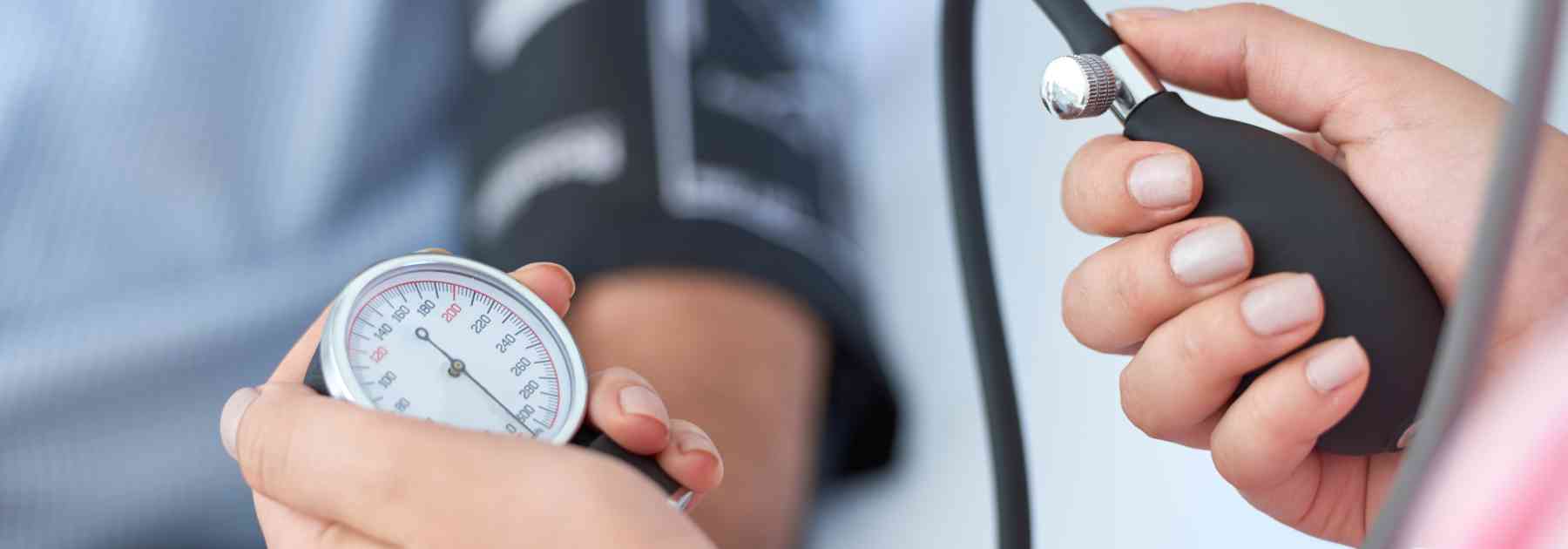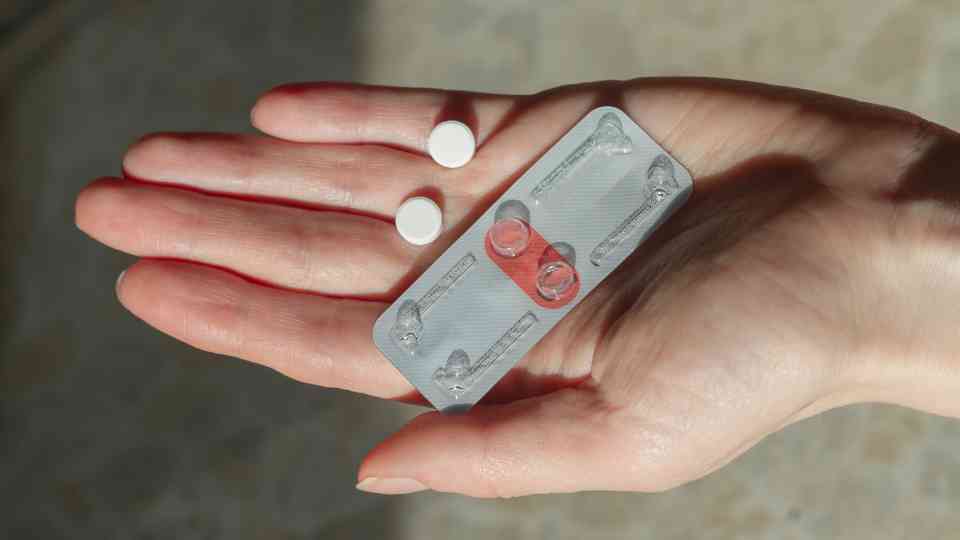Emergency contraception is an essential option for preventing unintended pregnancies after unprotected intercourse or contraceptive failure. As people increasingly seek convenience in healthcare, many wonder: Where can you get emergency contraception? Two common options are purchasing it online or visiting The Local Pharmacy. While both avenues are effective, they offer vastly different experiences, and in many cases, the personalised support provided at a pharmacy is invaluable.
This blog post explores the differences between online access to emergency contraception and obtaining it from The Local Pharmacy, highlighting why in-person support is often the better choice for your reproductive and sexual health.
Online Access to Emergency Contraception
In recent years, online platforms have made emergency contraception widely accessible. Many websites and apps allow individuals to order emergency contraceptive pills, such as levonorgestrel or ulipristal acetate, and have them delivered discreetly to their homes.
Advantages of Online Access
- Convenience:
The ability to order emergency contraception online from the comfort of your home is appealing, especially for those with busy schedules or limited mobility. - Discretion:
For individuals concerned about privacy or stigma, online access offers a discreet solution. Packaging is often unmarked, and there’s no need for face-to-face interactions. - 24/7 Availability:
Online pharmacies operate around the clock, making it possible to place orders outside of standard pharmacy hours. - Comparison Shopping:
Consumers can compare prices across different platforms, potentially finding more affordable options.

Limitations of Online Access
- Delivery Delays:
Emergency contraception is most effective when taken as soon as possible after unprotected intercourse. Even with expedited shipping, waiting for delivery may reduce the pill’s effectiveness. - Lack of Immediate Access:
Online orders can’t match the immediacy of visiting a local pharmacy. Same-day delivery services are limited and not universally available. - Limited Guidance:
While some online providers offer virtual consultations, these can feel impersonal, and detailed questions about usage, side effects, or alternatives may not be thoroughly addressed.
Getting Emergency Contraception at The Local Pharmacy
Local pharmacies remain a trusted source for obtaining emergency contraception, offering a personal touch that online platforms cannot replicate.
Advantages of Visiting The Local Pharmacy
- Immediate Access:
One of the biggest benefits of visiting a pharmacy is the ability to obtain emergency contraception immediately. No waiting periods mean you can take the medication at its most effective window. - Professional Support and Advice:
Pharmacists are trained healthcare professionals who provide tailored guidance. Whether you need advice on which type of emergency contraception is best for you or have questions about side effects, they can offer personalised answers. - Assessment of Suitability:
Emergency contraception isn’t a one-size-fits-all solution. Pharmacists can assess your specific situation, considering factors like how many hours have passed since unprotected intercourse or potential interactions with other medications. - Alternatives and Additional Care:
In some cases, emergency contraceptive pills may not be the best option. Pharmacists can recommend alternatives, such as an emergency IUD, and direct you to appropriate healthcare providers. - Access to Related Services:
Local pharmacies often offer additional sexual health services, such as STI testing, contraceptive advice, and regular birth control prescriptions, providing comprehensive care in one location. - No Delivery Uncertainty:
Unlike online orders, there’s no risk of delivery delays or lost packages when you visit a pharmacy. You leave with the medication in hand, ready to use immediately.
Addressing Concerns About Privacy and Stigma
Some individuals worry about the perceived embarrassment of buying emergency contraception in person. However, pharmacists are professionals who handle these requests with discretion and without judgement. At The Local Pharmacy, we ensure every customer feels comfortable and supported, offering private consultations if desired.

Why The Local Pharmacy Is the Better Choice
While online access offers convenience, the comprehensive care provided by The Local Pharmacy sets it apart. Here’s why getting emergency contraception from us is the better choice:
- Timeliness:
When it comes to emergency contraception, timing is critical. A visit to the pharmacy ensures you can take action quickly without waiting for delivery. - Expert Guidance:
Our pharmacists are here to answer all your questions, whether it’s about the medication itself, potential side effects, or follow-up care. This level of support is often missing from online services. - Personalised Care:
At The Local Pharmacy, we treat every customer as an individual. We take the time to understand your needs and provide the best solution for your specific situation. - Holistic Sexual Health Services:
Beyond emergency contraception, we offer a range of services to support your long-term sexual and reproductive health, making us a one-stop destination for your healthcare needs. - Peace of Mind:
Knowing you’re receiving the correct medication, with professional advice on how to use it effectively, provides reassurance that can’t be matched by an online purchase.
Make Informed Decisions About Your Reproductive Health
So, where can you get emergency contraception? While online platforms offer convenience and discretion, they cannot replace the immediacy, personalised advice, and holistic care provided by The Local Pharmacy. When time is of the essence, and you need expert support, visiting your local pharmacist is the best choice.
At The Local Pharmacy, we’re committed to helping you make informed decisions about your health in a comfortable and supportive environment, so get in touch today. If you need emergency contraception or have any questions about your options, book an appointment to speak to our team. Your health and well-being are our priority.
This blog was written on behalf of The Local Pharmacy by Pharmacy Mentor.
Discover related articles
The flu season is upon us, and at The Local Pharmacy, we’re dedicated to ensuring our community in Spalding has access to the flu vaccine and understands its importance, especially for those most vulnerable to serious flu complications. For many, the flu may seem like an inevitable winter illness, but for those with certain health conditions, catching the flu can lead to severe illness and even hospitalisation.
The flu vaccine doesn’t just protect against minor symptoms; it helps prevent severe respiratory illness, complications, and even death in high-risk groups. Furthermore, the flu virus is highly contagious and spreads easily in community settings.
This is why getting the flu vaccine in Spalding is a crucial preventive step.
Health Conditions That Increase Flu Risks
Certain health conditions can make the body more susceptible to catching the flu, and they often lead to more severe symptoms and complications. If you or a loved one has any of the following conditions, it’s especially important to get vaccinated.
1. Chronic Respiratory Conditions
People with chronic respiratory issues, such as asthma, chronic obstructive pulmonary disease (COPD), or bronchitis, are particularly vulnerable to flu complications. The flu virus targets the respiratory system, worsening symptoms of these underlying conditions and leading to difficulties in breathing, chest infections, or even pneumonia. For those with conditions like asthma, even a mild case of the flu can trigger severe asthma attacks, making the flu vaccine a priority.
2. Heart Disease
Individuals with heart disease, including coronary artery disease and heart failure, face higher risks when it comes to flu complications. The added strain the flu puts on the body can worsen heart conditions, sometimes leading to heart attacks or strokes. Studies have shown that the flu vaccine reduces the risk of flu-related heart events, making it essential for anyone with cardiovascular concerns.

3. Diabetes
Diabetes, whether type 1 or type 2, compromises the immune system, making it more difficult for the body to fight infections. High blood sugar levels can also interfere with immune responses, making individuals more susceptible to contracting the flu. For people with diabetes, flu-related complications can lead to severe outcomes, including diabetic ketoacidosis and pneumonia. The flu vaccine helps lower these risks, ensuring better protection through the flu season.
4. Kidney Disease
Those with chronic kidney disease (CKD) have a weakened immune system, which means they’re at greater risk of severe flu symptoms and complications. For individuals with CKD, the flu virus can worsen kidney function, leading to an increased likelihood of hospitalisation. Getting vaccinated provides an added layer of protection, allowing people with kidney conditions to better manage their health during flu season.
5. Liver Disease
The flu can be particularly dangerous for individuals with liver disease, such as cirrhosis or hepatitis. These conditions often weaken the body’s ability to filter out toxins and fight infections, meaning flu complications can worsen liver function and increase the risk of severe illness. For those with liver issues, a flu vaccine is a proactive measure that can help prevent exacerbation of their condition.
6. Neurological Conditions
Individuals with neurological conditions, including Parkinson’s disease, motor neurone disease, and multiple sclerosis, are more vulnerable to flu complications. The flu can exacerbate symptoms of these conditions, leading to increased mobility issues, fatigue, and respiratory difficulties. Additionally, people with neurological conditions may face higher risks of flu-related pneumonia and require longer recovery periods. Vaccination helps lower these risks, offering vital protection to this group.
7. Immunocompromised Individuals
People with weakened immune systems, either due to conditions like HIV/AIDS or treatments like chemotherapy, are at high risk for serious flu complications. For immunocompromised individuals, the body’s ability to fight infections is significantly reduced, meaning the flu can lead to severe and even life-threatening conditions. The flu vaccine, while providing indirect protection, helps ensure these individuals have a lower risk of severe illness.
8. Pregnancy
Pregnant women are more susceptible to severe flu symptoms, as the immune system, heart, and lungs undergo changes during pregnancy. The flu can increase the risk of complications such as pneumonia, premature labour, and delivery complications. Receiving the flu vaccine during pregnancy also protects the baby in the first few months of life, offering double protection for both mother and child.

Easy Access to the Flu Vaccine
At The Local Pharmacy, we understand the importance of providing easy access to the flu vaccine for all members of our community, especially those at high risk. We offer a professional, friendly service that ensures each individual understands the benefits and is comfortable with the vaccination process.
Our team is here to answer any questions you may have, assess your eligibility for free NHS vaccination, and help you schedule your flu jab at a convenient time. We’re committed to supporting you through the flu season with trusted advice and professional care.
Don’t Delay—Book Your Flu Vaccine in Spalding Today
Protecting yourself from the flu is essential, especially if you or someone close to you has any of the high-risk conditions discussed above. By receiving the flu vaccine, you’re taking a crucial step towards a safer, healthier winter season. Contact us at The Local Pharmacy to book your flu vaccine in Spalding today and stay protected against flu complications.
This blog was written on behalf of The Local Pharmacy by Pharmacy Mentor.
Discover related articles
Selecting the best contraception method is an important decision that can impact your health, lifestyle, and peace of mind. At The Local Pharmacy, we’re here to support you in making the most informed choice for your unique needs. For many, oral contraception, or “the pill,” is a reliable and convenient option. However, it’s important to explore how it aligns with your lifestyle, health, and personal preferences. We’ve put together a helpful guide and a self-reflective quiz to assist you in considering whether oral contraception might be the right choice for you.
What is Oral Contraception?
Oral contraception, commonly referred to as “the pill,” is a widely used form of birth control. Taken daily, it primarily works by preventing ovulation, thereby reducing the chance of pregnancy. There are two main types of oral contraceptives:
- Combined Pill: Contains both oestrogen and progestogen hormones. This type prevents ovulation, thickens cervical mucus to block sperm, and thins the womb lining.
- Progestogen-Only Pill (POP): Contains only progestogen, making it a suitable choice for those sensitive to oestrogen or breastfeeding. It thickens cervical mucus and, for some users, stops ovulation.
Both types are effective, but they each come with different benefits and considerations. To help you find the best option, here are some questions to ask yourself.
Quiz: Questions to Consider When Choosing a Contraception Method
Before choosing oral contraception, it’s essential to consider your individual needs, health factors, and lifestyle. Here are key questions to help you decide if oral contraception could be the right fit:
1. How Regularly Can I Take a Pill?
- Oral contraception requires daily use, so it’s essential to think about whether this routine fits your lifestyle.
- Question: Can I remember to take a pill at the same time every day?
2. Do I Want a Method That Is Easily Reversible?
- Unlike some long-term options, the effects of the pill are reversible, allowing you to resume fertility soon after stopping.
- Question: Do I want a contraception method that allows me to quickly return to my natural cycle?

3. Am I Sensitive to Hormones?
- Some people may experience side effects from hormonal contraception, such as mood changes, nausea, or headaches.
- Question: Have I experienced side effects from hormone-based treatments before?
4. Do I Have Any Health Conditions?
- Certain health conditions, such as high blood pressure, migraines with aura, or a history of blood clots, may affect your choice.
- Question: Do I have any medical conditions that could make the combined pill unsuitable?
5. How Effective Do I Need My Contraception to Be?
- When used correctly, the pill is highly effective, but missing doses can reduce its efficacy.
- Question: Am I confident in maintaining a daily routine for the highest effectiveness?
6. Do I Want Other Health Benefits?
- The combined pill may offer additional benefits, such as lighter periods, reduced acne, and relief from menstrual pain.
- Question: Would I benefit from added effects, like lighter periods or improved skin?
7. Am I Breastfeeding?
- The progestogen-only pill is suitable for breastfeeding as it doesn’t affect milk supply.
- Question: Do I need a contraception method compatible with breastfeeding?
8. Am I Comfortable with the Risk of Side Effects?
- Side effects are typically mild, but it’s essential to feel informed and comfortable with any potential risks.
- Question: Am I aware of possible side effects, and am I comfortable managing them?
9. How Important is Convenience?
- Oral contraception offers privacy and ease of use, but it requires a routine and periodic prescription refills.
- Question: Do I prefer a discreet option that allows control without doctor visits for adjustments?
The Benefits of Oral Contraception
Oral contraception offers a host of benefits, particularly for those seeking flexibility. With the combined pill, many users experience regulated, lighter, and less painful periods. Some may even find relief from hormonal acne, making the pill a dual-purpose option. The progestogen-only pill, on the other hand, provides a reliable alternative for those who can’t take oestrogen, including breastfeeding mothers.
Both forms of the pill offer the benefit of easy reversibility, which is especially attractive for those considering family planning in the near future. After stopping the pill, fertility typically returns quickly, making it ideal for those seeking a temporary but effective solution.

Understanding Possible Side Effects
As with any medication, it’s important to be informed about possible side effects. The most common include mild nausea, breast tenderness, or slight mood changes, which often subside as the body adjusts. For some, the combined pill may slightly increase the risk of blood clots, particularly for individuals with a family history of clotting disorders. Discussing your medical history with a pharmacist or healthcare provider is vital to finding the safest and most comfortable option.
Ready to Discuss Your Contraception Options?
Choosing the right contraception is an important decision that deserves time and consideration. By asking yourself the questions above, you can gain better clarity on whether oral contraception is a suitable option. The Local Pharmacy is here to guide you every step of the way.
Contact us today to start a conversation about what works best for your lifestyle and health needs. With our professional advice, you can feel confident in making a choice that aligns with your goals and wellbeing.
This blog was written on behalf of The Local Pharmacy by Pharmacy Mentor.
Discover related articles
At The Local Pharmacy, we’re dedicated to keeping the Leicester community safe by offering the Covid jab. To help you better understand the process, we’ve put together some common questions and answers, including debunking a few myths about the vaccine.
Q: Why should I get the Covid jab in Leicester?
A: Getting vaccinated is the best way to protect yourself and others from Covid-19. The vaccine significantly reduces the risk of severe illness, hospitalisation, and death, and helps slow the spread of the virus in the community. At The Local Pharmacy, we offer easy access to the vaccine, so you can protect yourself and those around you.
Q: How do I book my Covid jab in Leicester?
A: Booking your Covid jab at The Local Pharmacy is straightforward. You can call us directly, visit our website, or drop by in person to schedule your appointment. We offer flexible time slots to accommodate your busy schedule and ensure the process is as hassle-free as possible.

Q: Is the Covid jab safe?
A: Yes, the Covid vaccines approved for use in the UK have undergone rigorous testing to ensure their safety and effectiveness. Millions of people worldwide have received the vaccine, and ongoing monitoring shows that it continues to be safe. Serious side effects are extremely rare, and most people experience only mild side effects such as a sore arm, fatigue, or a mild fever, which usually pass within a few days.
Q: Do I need a booster jab?
A: Yes, it is recommended to get a booster jab to maintain protection against new variants of the virus and ensure long-lasting immunity. Depending on when you had your last dose, you may be eligible for a booster at The Local Pharmacy in Leicester. Speak to our team to check your eligibility and book your booster appointment.
Q: Can I get the Covid jab if I’m pregnant?
A: Yes, pregnant individuals are encouraged to get vaccinated. The Covid jab is safe during pregnancy and helps protect both the mother and baby from severe illness. If you have any concerns about getting vaccinated while pregnant, our team at The Local Pharmacy can provide advice and answer any questions you may have.

Q: What if I’ve already had Covid-19? Do I still need the vaccine?
A: Yes, even if you’ve had Covid-19, it’s important to get vaccinated. Natural immunity from a past infection may not be as strong or long-lasting as the protection provided by the vaccine, especially against new variants. The Covid jab strengthens your immunity and helps ensure you’re fully protected in the long term.
Q: Can I walk in for a Covid jab, or do I need an appointment?
A: At The Local Pharmacy, we offer both walk-in and appointment options for the Covid jab in Leicester. However, we recommend booking in advance to ensure a convenient time and avoid any waiting. Walk-ins are subject to vaccine availability on the day, so booking is the best way to guarantee your slot.
Q: How long does the appointment take?
A: The actual vaccination takes only a few minutes. However, you will need to stay for 15 minutes after your jab so we can monitor you for any rare allergic reactions. The whole process usually takes about 20–30 minutes from start to finish.
Take the Next Step
At The Local Pharmacy, we’re committed to keeping our community healthy. If you haven’t had your Covid jab yet or need a booster, don’t wait! Get in touch to book your appointment with us today.
Protect yourself and those around you by getting your Covid jab in Leicester.
This blog was written on behalf of The Local Pharmacy by Pharmacy Mentor.
Discover related articles
Earaches and blocked ears can be frustrating and uncomfortable, but at The Local Pharmacy, we understand how these issues can disrupt your day-to-day life. Fortunately these issues, often caused by earwax build-up, are easy to manage with the right approach. In this blog, we’ll explore common causes of earache and blocked ears, and how using the best ear drops for removing earwax can provide fast and effective relief.
Why Does Earwax Build-Up?
Earwax, or cerumen, is a natural substance produced by glands in the ear canal. Its primary function is to protect the ears by trapping dirt, dust, and bacteria, preventing them from reaching deeper into the ear. In most cases, earwax naturally moves out of the ear canal, where it dries and falls away. However, there are times when earwax builds up excessively, leading to blocked ears and discomfort.
Some people produce more earwax than others, and several factors can contribute to build-up, including:
Using cotton buds: Inserting objects like cotton buds into your ears can push wax deeper into the ear canal, leading to impaction.
Hearing aids or earplugs: Regular use of devices that sit in the ear can trap wax and prevent its natural clearance.
Ear canal shape: Some individuals have narrower or curved ear canals, making it harder for earwax to move out naturally.
When earwax accumulates, it can lead to symptoms such as:
- Earache: A dull pain or pressure in the ear
- Blocked or muffled hearing: A sensation of fullness or decreased hearing ability
- Tinnitus: A ringing or buzzing sound in the ear
- Dizziness: In rare cases, excessive earwax can affect balance
If you experience dizziness or tinnitus, you should inform your healthcare provider.

Why Use Ear Drops for Earwax Removal?
When it comes to managing earwax build-up, ear drops are one of the most effective and non-invasive treatments available. They work by softening the hardened wax, making it easier for the body to naturally expel it. Choosing the best ear drops for removing earwax can provide fast relief from discomfort and help restore normal hearing.
Benefits of Using Ear Drops:
- Non-invasive solution: Unlike syringing or manual removal, ear drops offer a gentle and non-invasive method of treating earwax build-up.
- Ease of use: Ear drops can be applied at home, making them a convenient option for those with busy schedules.
- Effective relief: With regular use, ear drops can soften and break down hardened earwax, allowing it to clear naturally.
- Preventative care: For individuals prone to earwax build-up, using drops regularly can help prevent future blockages and discomfort.
Choosing the Best Ear Drops for Removing Earwax
At The Local Pharmacy, we stock a range of ear drops designed specifically for earwax removal. Some of the most effective formulations include:
Olive Oil Drops: One of the most popular and natural choices, olive oil helps soften earwax, making it easier for it to leave the ear canal. It’s gentle, safe, and suitable for regular use.
Hydrogen Peroxide-Based Drops: These drops work by releasing oxygen, which helps to break down and loosen earwax. They’re particularly effective for hardened or impacted wax, although they should be used with caution in individuals with sensitive skin or ears.
Sodium Bicarbonate Drops: This solution works by dissolving earwax, helping it to drain out more easily. Sodium bicarbonate is a powerful remedy for stubborn blockages but can cause mild irritation in some people.
Carbamide Peroxide Drops: Known for their ability to release oxygen and gently bubble away earwax, these drops are often recommended for those with more serious wax build-up.
When choosing the right ear drops, it’s essential to consider your ear health, any sensitivities you may have, and the severity of the wax build-up. Our pharmacists at The Local Pharmacy are always on hand to provide advice and recommend the most suitable product for your needs.
How to Use Ear Drops Effectively
Using ear drops is a simple process, but it’s important to follow the correct steps to ensure the treatment is effective. Here’s how to use ear drops for removing earwax:
- Warm the bottle: Hold the bottle of ear drops in your hand for a few minutes to warm it to body temperature. This can make the application more comfortable.
- Tilt your head: Lie down or tilt your head to the side, ensuring the affected ear is facing upwards.
- Apply the drops: Squeeze the recommended number of drops into your ear. Avoid touching the tip of the dropper to your ear to keep it clean.
- Let the drops sit: Stay in this position for several minutes to allow the drops to penetrate the earwax.
- Clean excess fluid: After several minutes, sit up and gently wipe away any excess fluid with a tissue.
Most ear drops recommend use for 3-5 days, but always check the packaging or consult with a pharmacist for specific instructions.

When to Seek Medical Advice
While ear drops are effective for most people, there are instances where you may need to seek further medical advice. If you experience any of the following, consult a healthcare professional:
- Persistent pain or discomfort
- Significant hearing loss
- Discharge from the ear
- A history of ear infections or perforated eardrums
In some cases, additional treatments such as microsuction or ear syringing may be necessary to remove the earwax safely.
Preventing Earwax Build-Up
Once you’ve cleared the wax, it’s important to prevent future build-up. Here are some tips to maintain healthy ears:
- Avoid using cotton buds or inserting objects into your ears.
- Use ear drops regularly if you’re prone to wax build-up.
- Keep your ears dry, especially after swimming or bathing, as moisture can contribute to wax accumulation.
Fast and Effective Relief
Earache and blocked ears caused by earwax build-up are common but easily treatable issues. Using the best ear drops for removing earwax is an effective, non-invasive way to manage these problems. At The Local Pharmacy, we offer a range of ear drop solutions to suit all needs and are here to provide expert advice on maintaining your ear health. If you’re struggling with earwax, contact us today and find the best remedy for fast relief.
This blog was written on behalf of The Local Pharmacy by Pharmacy Mentor.
Discover related articles
When the flu strikes, it can leave you feeling drained, achy, and miserable. At The Local Pharmacy in Leicester, we understand the urgency of wanting to feel better fast. While it’s challenging to fully recover from the flu in just 24 hours, there are effective steps you can take to reduce your symptoms, feel better quickly, and prevent the virus from lingering. Here’s our step-by-step guide on how to get rid of the flu in 24 hours and start feeling like yourself again.
Step 1: Rest and Hydration
The most crucial step in fighting the flu is giving your body the time and resources it needs to recover. Rest is essential for boosting your immune system’s ability to combat the virus. The flu can take a significant toll on your body. As such, lying down and taking it easy is the first thing you should do.
Alongside rest, hydration is key. Drinking plenty of fluids helps thin mucus, making it easier to clear congestion. It also prevents dehydration, which can worsen flu symptoms like headaches and fatigue. Water, herbal teas, and clear soups are all excellent choices. Avoid drinks that can dehydrate you, such as alcohol or caffeinated beverages.
Step 2: Use Over-the-Counter Remedies
The Local Pharmacy offers a range of over-the-counter medications that can help alleviate the symptoms of the flu, allowing you to feel better in a shorter period.
Pain Relief
To tackle common flu symptoms like headaches, body aches, and fever, consider using pain relief options such as paracetamol or ibuprofen. Both medications are effective at reducing fever and easing discomfort. Remember to follow the recommended dosage and consult with your pharmacist if you have any underlying health conditions that may affect which medication is best for you.
Decongestants and Cough Remedies
If you’re struggling with a blocked nose or cough, decongestants can help reduce nasal swelling and make breathing easier. For a persistent or dry cough, cough syrups or lozenges are also available. These treatments soothe the throat and reduce irritation, helping you to rest more comfortably.
Your pharmacist can help you choose the best remedies based on your symptoms and any other medications you might be taking.

Step 3: Boost Your Immune System with Nutrients
While your immune system is fighting off the flu, giving it some extra support through your diet can make a big difference. Nutrient-rich foods, particularly those high in vitamin C and zinc, are known for their immune-boosting properties.
Citrus fruits, red peppers, and leafy greens are excellent sources of vitamin C. Alternatively, zinc can be found in foods like nuts, seeds, and lean meats. If you’re not feeling up to eating, consider a vitamin C or zinc supplement, available at The Local Pharmacy.
In addition, warm, nutritious foods such as chicken soup can provide comfort, help reduce congestion, and keep you hydrated. All of this will contribute to speeding up your recovery.
Step 4: Inhale Steam to Clear Nasal Congestion
One of the most uncomfortable symptoms of the flu is nasal congestion. Inhaling steam is a simple and effective way to clear your airways and ease breathing. To create an at-home steam bath, simply fill a bowl with hot water, drape a towel over your head to trap the steam, and inhale deeply for several minutes, allowing the warm vapours to clear your airways. Adding a few drops of eucalyptus oil or menthol to the water can enhance the effect, helping to relieve congestion more quickly.
If steam inhalation isn’t for you, we offer menthol-based rubs and inhalers that work similarly to unblock your nose and clear your airways.
Step 5: Gargle with Salt Water for a Sore Throat
A sore throat is another common symptom of the flu, but relief can be found with a simple saltwater gargle. Mix about half a teaspoon of salt into a glass of warm water and gargle it for about 30 seconds before spitting it out. This can help reduce swelling and discomfort, and may even loosen mucus.
If the sore throat persists, we stock throat lozenges and sprays that provide longer-lasting relief.
Step 6: Get Plenty of Sleep
Sleep is one of the most powerful tools in your recovery arsenal. Getting a good night’s sleep allows your immune system to work at full capacity, helping your body fight off the flu virus. Make your sleeping environment comfortable and conducive to rest by ensuring it is cool, dark, and quiet. If nasal congestion is keeping you awake, try propping your head up with an extra pillow to help your airways stay open.
Resting during the day will also support your recovery.

Step 7: When to See a Doctor
While most cases of the flu can be managed at home with these steps, certain symptoms may indicate that it’s time to seek medical help. If you experience difficulty breathing, chest pain, a high fever that won’t come down, or symptoms that suddenly worsen after an initial improvement, contact a healthcare professional as soon as possible.
The Importance of Vaccination
Although these steps can help you manage the flu and recover more quickly, the best way to protect yourself from the flu in the first place is to get vaccinated. The annual flu vaccine is updated each year to protect against the most common strains of the virus.
The flu jab significantly reduces your risk of catching the flu. If you do become ill, it can also reduce the severity of your symptoms. Vaccination is particularly important for vulnerable groups such as older adults, pregnant women, and those with underlying health conditions. By getting vaccinated, you not only protect yourself but also help protect those around you from the spread of the virus.
A Quick Recovery
While it’s hard to completely recover from the flu in just 24 hours, following these steps can help you feel better quickly and minimise the duration of your illness. By staying hydrated, using the right over-the-counter remedies, and supporting your immune system, you can get back on your feet sooner. Contact us to find out about how we can support you through the flu.
Remember, the best defence against the flu is prevention, so make sure to book your flu vaccination at The Local Pharmacy today!
This blog was written on behalf of The Local Pharmacy by Pharmacy Mentor.
Discover related articles
With winter approaching, it’s crucial to understand flu virus evolution and the importance of staying updated with your vaccination. At The Local Pharmacy, we explain the importance of the latest vaccine, helping customers make informed healthcare choices.
Here’s a comprehensive guide on flu mutation and why the 2024 flu jab is vital for your health.
How the Flu Virus Mutates
The flu virus is notorious for its ability to mutate. This is predominantly due to two processes: antigenic drift and antigenic shift.
The flu virus mutates primarily due to the high error rate in its replication process and its ability to exchange genetic material with other flu strains. The virus’s genetic material is made up of RNA, which, unlike DNA, lacks a proofreading mechanism during replication. This results in frequent small errors or mutations, a process known as antigenic drift. These gradual changes help the virus evade the immune system, leading to new flu strains each season.
Additionally, when two different flu strains infect the same host, they can exchange genetic segments in a process called antigenic shift. This can create a completely new strain with a mix of genetic material from both parent viruses. These mutations are driven by the virus’s need to adapt and survive in the face of immune responses and other environmental pressures. This makes it difficult for the immune system to recognise and fight the virus effectively.
These mutations make the flu virus particularly challenging to combat, as they require the constant development of new vaccines and can lead to severe outbreaks with widespread health impacts. This is why getting vaccinated is so important. It not only protects you but also helps safeguard your community by reducing the spread of the virus.

Why the 2024 Flu Jab Is Essential
Each year, health authorities and researchers closely monitor flu virus strains circulating globally. They analyse data on the predominant strains to predict which ones are most likely to be prevalent in the upcoming flu season. This information is used to develop the annual flu vaccine, ensuring it targets the most current and relevant strains.
Updated Protection: The 2024 flu jab targets the flu strains predicted to be most common this year, reducing your risk of flu and its symptoms.
Enhanced Immune Response: The 2024 vaccine boosts your immune system’s ability to recognise and combat updated flu strains effectively. This provides stronger protection for you and your loved ones.
Community Health: Getting vaccinated not only protects you but also contributes to community health. When a large percentage of the population is vaccinated, it helps reduce the overall spread of the virus. This protects those who are more vulnerable, such as the elderly, young children, and individuals with chronic health conditions.
Reducing Severity: Even if you do contract the flu after being vaccinated, the vaccine can significantly reduce the severity of the illness. It can lower the risk of severe complications, hospitalisation, and in some cases, death.

Ten Steps to Getting Your 2024 Flu Jab
Ensuring you receive the 2024 flu jab is straightforward. Here’s how you can prepare and what to expect:
- Book an Appointment Early: Schedule your flu jab as soon as available, especially if you’re in a high-risk group.
- Check Suitability: Confirm if you’re high risk, including being over 65, pregnant, with a long-term condition, or a healthcare worker.
- Consult Your GP: If you have health concerns or allergies, consult your GP before the flu jab to ensure it’s safe.
- Wear Loose Clothing: On the day, wear clothing that allows easy access to your upper arm for the injection.
- Expect a Quick Procedure: The flu jab is a quick injection, usually into the upper arm, taking only a few seconds.
- Possible Side Effects: Mild side effects like a sore arm, slight fever, or fatigue may occur, typically resolving within a day or two.
- Stay for Observation: You may need to stay a few minutes post-injection to monitor for immediate reactions, especially for first-timers.
- Maintain Your Health Habits: Continue practising good hygiene, like hand washing and a balanced diet, to maximise your flu protection.
- Allow Time for Immunity to Build: Full immunity develops two weeks after the jab, so get vaccinated before flu season peaks.
- Keep Your Vaccination Record: Ensure your flu vaccination is recorded in your health records, and note the date for future reference.
2024 Flu Protection
Understanding flu mutations and receiving the latest vaccine is key to staying healthy during winter. The 2024 flu jab protects against current strains, boosting your immunity and supporting overall community health. By staying informed and getting vaccinated, you help prevent the spread of the flu and protect vulnerable populations. Contact The Local Pharmacy today to schedule your flu jab and ensure you are well-prepared for the flu season.
This blog was written on behalf of The Local Pharmacy by Pharmacy Mentor.
Discover related articles
High blood pressure, also known as hypertension, is a common yet serious condition that can lead to various health complications if left untreated. At The Local Pharmacy in Leicester, we often receive questions from patients about the factors that contribute to high blood pressure. One question that frequently arises is: “Does dehydration cause high blood pressure?”
In this blog, we will explore the relationship between dehydration and high blood pressure, providing clarity on how your hydration levels can impact your blood pressure and overall health.
Understanding High Blood Pressure
Before diving into the link between dehydration and high blood pressure, it’s essential to understand what high blood pressure is and why it matters. Blood pressure is the force exerted by your blood against the walls of your arteries as your heart pumps it around your body. It’s measured in millimetres of mercury (mmHg) and recorded as two numbers: systolic pressure (the pressure when your heart beats) over diastolic pressure (the pressure when your heart rests between beats).
A normal blood pressure reading is typically around 120/80 mmHg. When your blood pressure consistently exceeds 140/90 mmHg, you are considered to have high blood pressure. Hypertension can strain your heart, damage blood vessels, and increase the risk of heart disease, stroke, and kidney problems. Therefore, managing your blood pressure is crucial for maintaining long-term health.
The Role of Dehydration in the Body
Dehydration occurs when your body loses more fluids than it takes in. Water is essential for numerous bodily functions, including regulating body temperature, lubricating joints, transporting nutrients, and flushing out waste. When you are dehydrated, your body cannot perform these functions efficiently, leading to various health issues.
Mild dehydration can cause symptoms such as thirst, dry mouth, fatigue, and dizziness. However, severe dehydration can have more serious consequences, including kidney failure, seizures, and shock. But how does dehydration relate to high blood pressure?

Does Dehydration Cause High Blood Pressure?
The simple answer is: Yes, dehydration can contribute to high blood pressure. However, the relationship is more complex than it might first appear. Here’s how dehydration can affect your blood pressure:
1. Reduced Blood Volume
When you’re dehydrated, the amount of water in your blood decreases, leading to a reduction in blood volume. Blood volume refers to the total amount of blood circulating in your body. When blood volume is low, your body compensates by constricting (narrowing) the blood vessels, which increases blood pressure. This response helps maintain blood flow to vital organs, but it can also lead to hypertension if the dehydration is not addressed.
2. Release of Vasopressin
Dehydration triggers the release of vasopressin, a hormone that causes your kidneys to retain water and also constricts blood vessels. Vasopressin plays a critical role in maintaining your body’s fluid balance. However, its effect on blood vessels can contribute to increased blood pressure, especially if dehydration becomes chronic.
3. Sodium Retention
Dehydration also affects the balance of electrolytes in your body, particularly sodium. When you’re dehydrated, your kidneys retain sodium to help conserve water. Sodium retention increases the amount of fluid in your blood vessels, which raises blood pressure. Over time, this can contribute to chronic high blood pressure.
4. Impact on Heart Function
Dehydration can cause your heart to work harder to pump blood around your body. With less fluid in your bloodstream, your heart must increase its effort to maintain adequate circulation. This added strain can lead to a temporary spike in blood pressure, which, if frequent, can contribute to long-term hypertension.
The Importance of Staying Hydrated
Maintaining proper hydration is essential for overall health and plays a significant role in managing blood pressure. Here are some tips to help you stay hydrated and support healthy blood pressure levels:
1. Drink Plenty of Water
Aim to drink at least 6-8 glasses of water each day. This amount may vary depending on your activity level, climate, and overall health. Remember that your body loses water throughout the day through sweating, breathing, and urination, so it’s essential to replenish these losses by drinking water regularly.
2. Monitor Your Hydration Levels
Pay attention to the signs of dehydration, such as dark urine, dry mouth, and fatigue. Keeping track of your urine colour can be a simple way to monitor your hydration status. Pale yellow urine typically indicates good hydration, while darker urine suggests you need to drink more fluids.
3. Eat Hydrating Foods
Incorporate hydrating foods into your diet, such as fruits and vegetables with high water content. Foods like cucumbers, watermelon, oranges, and lettuce are excellent choices that contribute to your overall fluid intake.
4. Limit Caffeine and Alcohol
Both caffeine and alcohol can contribute to dehydration, as they have diuretic effects (they increase urine production). While moderate consumption is generally fine, it’s important to balance these beverages with plenty of water.
5. Adjust Your Fluid Intake According to Activity Level
If you’re engaging in physical activity or spending time in hot weather, increase your water intake to compensate for the additional fluid loss through sweat.

Managing High Blood Pressure: When to Seek Help
While staying hydrated is crucial, it’s also essential to monitor your blood pressure regularly, especially if you’re at risk of hypertension. If you’ve been diagnosed with high blood pressure, or if you suspect you may have it, consult with a healthcare professional for proper management and treatment.
At The Local Pharmacy in Leicester, we offer blood pressure monitoring services and can provide advice on lifestyle changes, including hydration, diet, and exercise, to help manage your blood pressure. If dehydration is contributing to your high blood pressure, addressing your fluid intake could be a simple yet effective step in controlling your condition.
Conclusion: The Hydration-Blood Pressure Connection
The question, “does dehydration cause high blood pressure?” is indeed valid, as dehydration can lead to increased blood pressure through various mechanisms such as reduced blood volume, vasopressin release, sodium retention, and increased heart strain. Therefore, maintaining adequate hydration is a critical component of managing and preventing high blood pressure.
At The Local Pharmacy, we’re committed to helping you understand and manage your health. If you have concerns about your blood pressure or hydration levels, contact us for professional advice and support. Remember, small changes like drinking more water can have a significant impact on your overall health and well-being.
This blog was written on behalf of The Local Pharmacy by Pharmacy Mentor.
Discover related articles
If you’ve ever experienced a blocked ear or the discomfort that comes with excessive earwax build-up, you’ll know how important it is to have it removed safely and effectively. Here at The Local Pharmacy in Leicester, we frequently encounter patients seeking advice on the best way to manage earwax removal. With both NHS and private services available, it can be challenging to decide which option is right for you. In this blog, we’ll explore the differences between NHS earwax removal and private earwax removal services, offering you tips and insights to help you make an informed decision.
Understanding Earwax Build-up
Before diving into the comparison, it’s essential to understand why earwax removal is sometimes necessary. Earwax, or cerumen, is a natural substance produced by glands in your ear canal. It serves several important functions, including trapping dust and debris, protecting your ear canal, and providing a barrier against bacteria and infections.
However, in some cases, earwax can accumulate and harden, leading to a blockage. This can cause a range of symptoms, including reduced hearing, earache, dizziness, and even tinnitus. When earwax becomes problematic, removal is necessary to restore comfort and hearing.
NHS Earwax Removal: What You Need to Know
NHS earwax removal has long been a go-to option for many patients. Traditionally, this service was readily available through your local GP. However, in recent years, changes in guidelines and an overwhelmed National Health Service have led to a reduction in the availability of earwax removal services.

Private Earwax Removal: An Overview
As NHS services have become less accessible, private earwax removal has emerged as a popular alternative. Private clinics, including pharmacies like The Local Pharmacy in Leicester, offer various earwax removal methods, often with shorter wait times and more personalised care.
Our customers have many reasons for choosing private earwax removal:
- Quick Access: One of the biggest advantages of private earwax removal is the speed at which you can access the service. Most private clinics offer same-day or next-day appointments, allowing you to resolve the issue quickly, while NHS wait lists can delay care. Treating excess earwax as swiftly as possible is important to avoid complications.
- Variety of Methods: Private clinics often offer a range of earwax removal techniques, including microsuction and manual removal. Microsuction is particularly popular as it is a dry procedure, which reduces the risk of infection and can be more comfortable for the patient. NHS earwax removal typically involved irrigation, which is unsuitable for those with perforated eardrums.
- Personalised Service: In a private setting, the focus is on individualised care. You’ll have the opportunity to discuss your symptoms in detail and receive a tailored treatment plan. Private clinics often allocate more time for appointments, ensuring you don’t feel rushed.
- Follow-Up Care: Many private providers offer follow-up care to ensure that the treatment was effective and that your ears remain clear of wax build-up.
The most obvious drawback of private earwax removal is the cost. Prices can vary depending on the provider and the method used, but it’s typically an out-of-pocket expense. However, many patients find the cost worthwhile for the speed and convenience offered.
Choosing Between NHS and Private Earwax Removal
When deciding whether to opt for NHS earwax removal or a private service, consider the following factors:
- Severity of Symptoms: If you’re experiencing severe discomfort, significant hearing loss, or other worrying symptoms, it may be worth seeking private treatment to receive immediate care.
- Your Budget: Consider your financial situation and whether the cost of private treatment is within your budget. While private treatment is more expensive, the quicker access and broader range of techniques may justify the cost.
- Availability of NHS Services: Check with your GP to see if they still offer earwax removal services. If they don’t, or if the waiting time is too long, private treatment may be the best option.
- Preferred Method of Removal: If you’ve had a particular method of earwax removal in the past that you prefer, such as microsuction, it’s worth noting that this may be more readily available privately than on the NHS.
- Convenience: Consider the convenience of the service. Private clinics often offer more flexible appointment times, including evenings and weekends, which may better suit your schedule.

Why Private Removal Might be Best for You
At The Local Pharmacy in Leicester, we understand that managing earwax build-up can be both uncomfortable and inconvenient. Choosing between NHS earwax removal and private services ultimately depends on your individual needs, the severity of your symptoms, and how quickly you wish to be treated.
While the NHS offers a reliable and cost-effective option, the reduction in services and longer waiting times can be a drawback for those in need of immediate relief. On the other hand, private earwax removal provides quick access to a variety of effective treatments, albeit at a cost.
If you’re unsure which option is best for you, we invite you to contact us at The Local Pharmacy. Our team is on hand to provide advice, answer any questions, and offer professional earwax removal services that are tailored to your needs. Whether you choose NHS or private treatment, the most important thing is to take action and ensure your ears are well cared for.
This blog was written on behalf of The Local Pharmacy by Pharmacy Mentor.
Discover related articles
NHS Shingles Treatment in Leicestershire
Shingles, medically known as herpes zoster, is a viral infection that causes a painful rash. It’s caused by the varicella-zoster virus, the same virus that causes chickenpox. After an individual has had chickenpox, the virus remains inactive in nerve tissue and can reactivate years later as shingles. At The Local Pharmacy, we understand how debilitating this condition can be, which is why we are proud to offer NHS shingles treatment through the Pharmacy First scheme.
What is Shingles?
Shingles typically presents as a single stripe of blisters that wraps around either the left or right side of your torso. It can also occur on other parts of the body, including the face and eyes. Before the rash appears, you might experience pain, itching, or tingling in the area where it will develop. Other symptoms include fever, headache, and fatigue.
The rash itself usually turns into fluid-filled blisters that eventually crust over. While the rash usually heals within two to four weeks, some people experience postherpetic neuralgia (PHN), a condition where the pain continues long after the rash has cleared. This can be particularly distressing and significantly impact one’s quality of life.
Who is at Risk?
Shingles can affect anyone who has had chickenpox, but certain factors increase the risk:
- Age: People over 50 are more susceptible.
- Weakened immune system: Conditions such as HIV/AIDS, cancer treatments, or long-term use of steroids can make you more vulnerable.
- Stress and Trauma: Physical or emotional stress can trigger an outbreak.
- Medications: Certain drugs that weaken the immune system can increase the risk of shingles.
Importance of Early Treatment
Early treatment of shingles is crucial in managing symptoms and reducing the risk of complications. Antiviral medications, such as acyclovir, valacyclovir, and famciclovir, are most effective when started within 72 hours of the rash appearing. These medications can help shorten the duration of the shingles outbreak, reduce the severity of symptoms, and lower the risk of developing PHN.

NHS Shingles Treatment at The Local Pharmacy
The NHS shingles treatment is available through the Pharmacy First scheme, which allows individuals to receive treatment for minor conditions directly from their local pharmacy without the need to see a GP. This initiative helps to alleviate the pressure on GPs and hospitals while providing quick and efficient care for patients.
Benefits of the Pharmacy First Scheme:
- Accessibility: Our pharmacy is conveniently located, making it easier for you to access the treatment you need without the hassle of making a doctor’s appointment.
- Quick Service: By visiting The Local Pharmacy, you can receive prompt attention and start your treatment sooner, which is vital for the effectiveness of antiviral medications.
- Expert Advice: Our trained pharmacists are well-equipped to provide you with comprehensive advice on managing your symptoms and preventing complications.
- Confidential Care: We ensure that all consultations are conducted in a private and confidential manner, respecting your privacy and dignity.
What to Expect During Your Visit
When you visit The Local Pharmacy for NHS shingles treatment, our friendly and professional staff will guide you through the process. Here’s what you can expect:
- Consultation: You’ll have a confidential consultation with one of our pharmacists, who will assess your symptoms and medical history.
- Diagnosis: If shingles is diagnosed, the pharmacist will explain the treatment options available and answer any questions you may have.
- Prescription: If appropriate, the pharmacist can prescribe antiviral medication on the spot, allowing you to start your treatment immediately.
- Follow-Up: We will provide advice on symptom management and discuss follow-up care, including when to seek further medical attention if necessary.
Preventing Shingles
One of the best ways to prevent shingles is through vaccination. The NHS offers the shingles vaccine to people in their 70s. The vaccine significantly reduces the risk of developing shingles and, if the disease does occur, can make it less severe. Speak to our pharmacists to learn more about the vaccine and find out if you are eligible.
Additional Tips to Prevent Shingles:
- Maintain a healthy immune system: Regular exercise, a balanced diet, and adequate sleep can help keep your immune system strong.
- Manage Stress: Practice stress-reducing techniques such as yoga, meditation, or deep-breathing exercises.
- Avoid Contact with Infected Individuals: While shingles itself isn’t contagious, the varicella-zoster virus can be spread to those who have never had chickenpox or the chickenpox vaccine, causing them to develop chickenpox.

Managing Shingles at Home
In addition to the antiviral treatment prescribed by our pharmacists, there are several ways you can manage your symptoms at home:
- Pain Relief: Over-the-counter painkillers, such as ibuprofen or acetaminophen, can help manage pain.
- Cool Compresses: Applying cool, wet compresses to the rash can soothe itching and pain.
- Loose Clothing: Wearing loose-fitting clothing can prevent irritation of the rash.
- Calamine Lotion: This can help relieve itching and discomfort.
- Rest: Adequate rest is crucial for recovery.
Why Choose The Local Pharmacy?
At The Local Pharmacy, we are committed to providing high-quality care and support to our community. By offering NHS shingles treatment through the Pharmacy First scheme, we strive to make healthcare more accessible and efficient. Our team of experienced pharmacists is dedicated to helping you manage your health with compassion and professionalism.
Book an Appointment
If you suspect you have shingles, don’t wait, visit us today and let our expert pharmacists provide the care and support you need to get back to feeling your best.
Remember, early treatment is key to reducing the severity and duration of shingles. Trust The Local Pharmacy for your healthcare needs, and let us help you stay healthy and informed.
This blog was written on behalf of The Local Pharmacy by Pharmacy Mentor.
